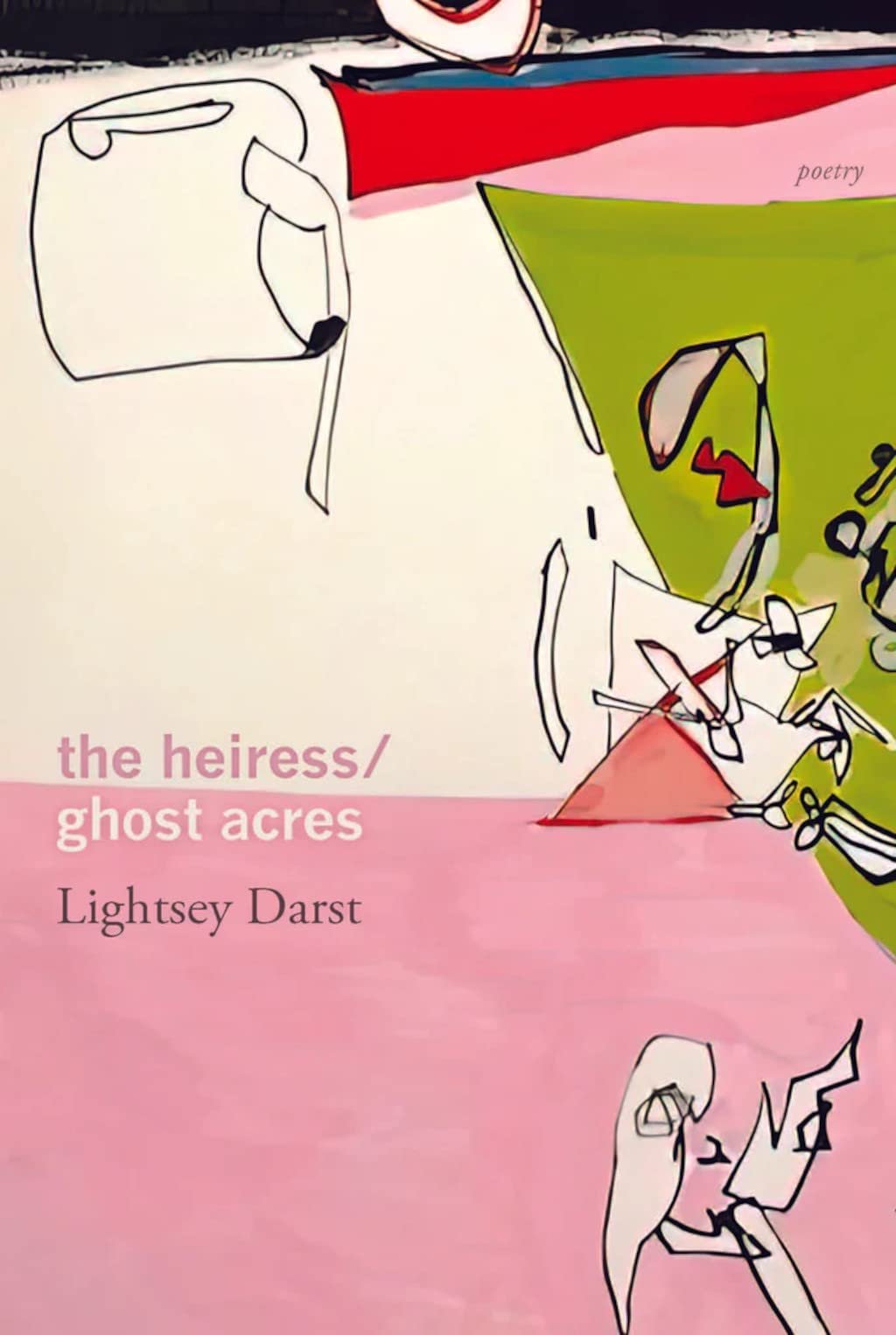The Heiress/Ghost Acres
Lightsey Darst
Reviewed by Kate Stoltzfus
Open to the middle of Lightsey Darst’s fourth poetry collection, and the faces emerge. Mirrored portraits on opposing pages: one of the author, one of her great-great-grandmother. The Heiress/Ghost Acres, out last month from Coffee House Press, is split into two parts—dividing meditations on generations past and present—and at this break, two women stare directly at the reader, as if looking out to a point beyond the page.
It’s a reflection of just how alive and necessary these poems feel. The collection appeared to me at just the right moment, as I was meeting the new child of a dear friend for the first time. There were so many lines I needed to share with her that captured the considerations of what it means to carry and hold life, then to release it into an often-unexplainable world. As Darst writes in the poem “Messiah,” “When you were born, / I understood that old promise: how you hold / a seed of infinite change and I must do anything to bring you to bloom.” Both compact and sprawling, each poem takes its time to unravel questions and inner monologues. Many of the poems forgo stanzas or lengthen lines, spread across multiple pages, or exist as snippets amid white space to mirror this rumination. Darst’s prose and syntax is straightforward and clear, burnished by the beauty of wondering, and often stunning in its complexity.
Darst weaves a shimmering constellation of contradictions: love and sorrow, ancestors and descendants, complicity and absolution. Concepts like motherhood, whiteness, class, colonization, privilege, and political injustice, through the small beating hearts of these poems, turn exacting and sharp. What does it mean to mother and what is its responsibility in easing the aches of upheaval? How can we keep from looking away from the personal and collective histories that continue to shape us? How might we imagine better for the future? What, if anything, can writing absolve?
In her own way, through this questioning, Darst provides germinations of response. I’ll leave you with one such gem, from the collection’s final page, when Darst converses with her son:
How to spin continuance here? It’s raining, supposed to rain all day,
so here we are at the beginning of something that will extend
its magic thread, this day all one unbroken streaming
down. Learn from it? Little birds do, they endure. This indoors of ours,
does it hold what it should? Is it lifelike? Is it warm? Should I be
a fairy? I asked him questions until he made it clear
he wanted something eerie to happen, something from the other side.
So okay, now I am the other side.

